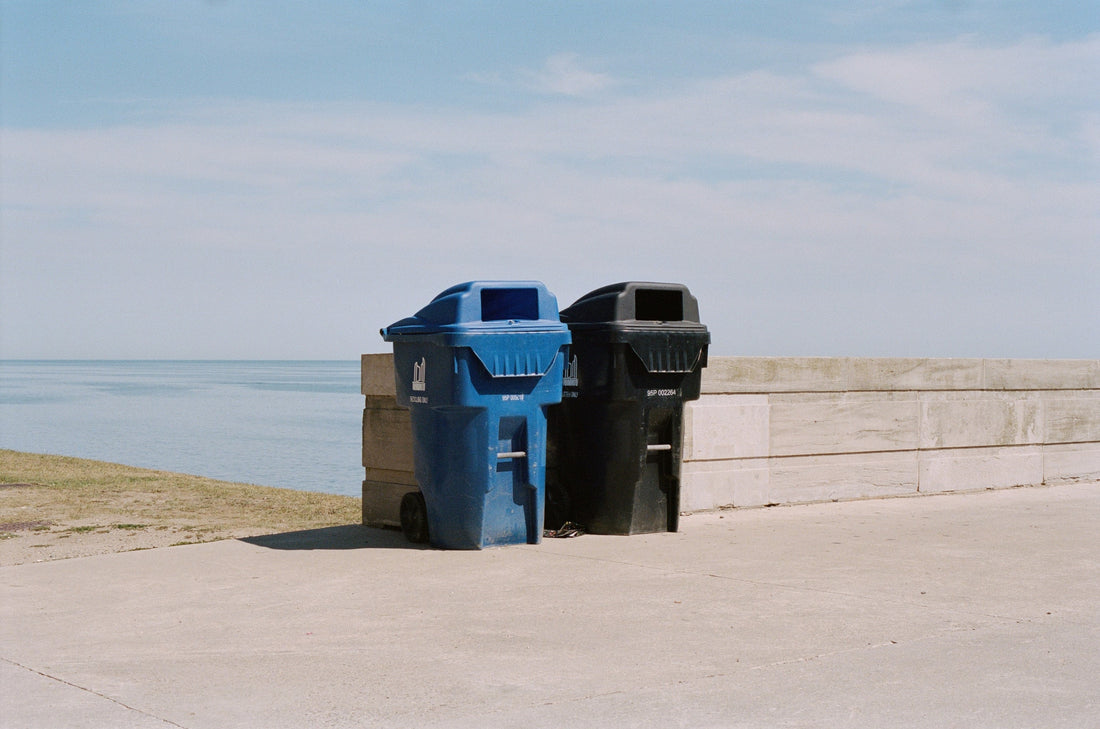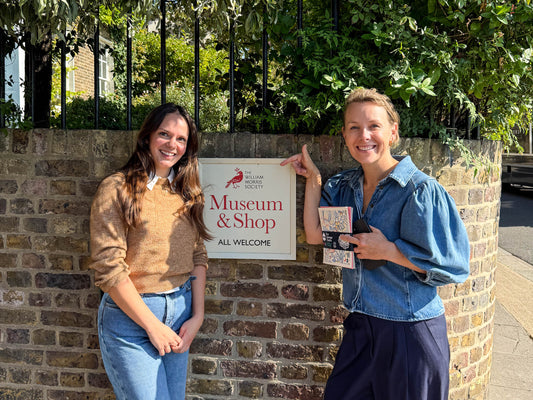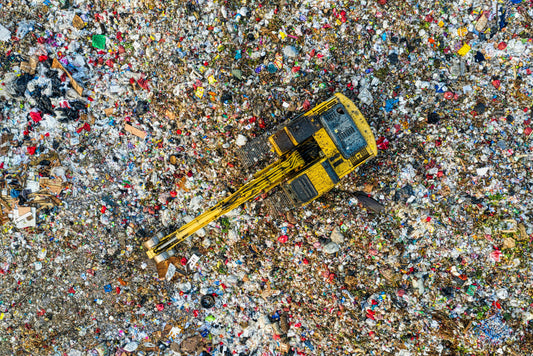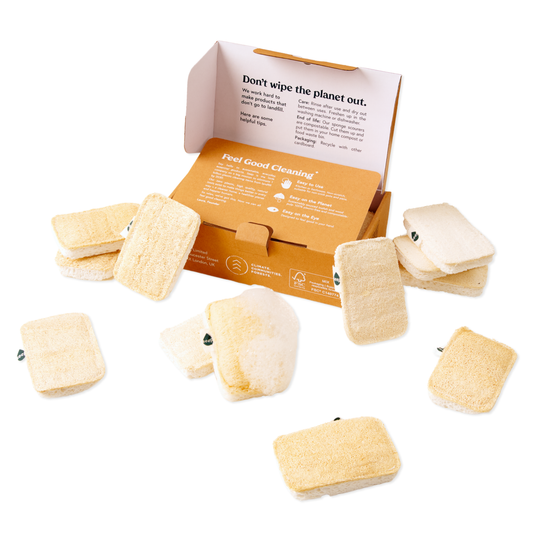
It’s official, we now have our own range of compostable bin liners!
We know, bin liners are far from the most glamorous thing on the planet. But, we can’t help but get excited at the prospect of fewer bits of plastic being sent to landfills and incinerators.
So today, let’s chat about compostable and biodegradable bin liners and how our eco-friendly alternatives work. It’s quite riveting stuff, we promise.
Why are standard bin liners so bad?
The classic bin liners we are accustomed to are durable and usually cost-effective. However, these liners are made from petroleum or natural gas, which are non-renewable resources. They can also take up to 1000 years to completely decompose and still leave behind microplastics when (and if) they do.
We know single use plastic shopping bags are bad for the environment and are slowly being phased, so why not move onto rubbish bags next?
What are compostable bin liners made from?
Bringing people better household essentials like bin liners is important to us at Seep. Better bin liners mean that they must be genuinely better for the planet and perform as well if not better than their plastic cousins. This is why we searched high and low for a supplier who provided the most eco-friendly products as possible but that also made products that were high quality so that they didn’t leak.
Our compostable bin liners are made from a raw material called Mater-Bi® by a company based in the UK with a factory in Belgium.
Mater-Bi® is a family of plant-based plastics (known as bio-polymers) and manufactured by world-renowned experts at Novamont Spa in Italy. These plant-based plastics are made using cornstarch and plant oils derived from non-GMO EU grown maize. The best part? No palm or soya products, virgin soil or deforestation is involved in any step of the way.
Sounds pretty futuristic, right?
Are compostable bin bags good for the environment?
How they work
Let’s start off with a disclaimer. By far the most eco-friendly and cost-effective bin liner alternative is to go completely bagless. But, for those who can’t stomach their waste without a bag (and let’s face it most Local Authorities will refuse to collect it this way anyway), the next best thing is compostable liners.
Our compostable bin liners are certified EN13432. This means they are able to be thrown into your home compost and, if kept at a consistently high temperature, will totally degrade within 90 days. Also if you’re lucky enough that your Local Authority picks up your kitchen or garden waste (~44% of English households, higher in the rest of the UK), they will accept your waste in our compostable bags.
The reality though is that most people use bin liners for their regular household waste (minus recycling) and the vast majority of this waste ends up in landfill or an incinerator. This means that the bags may not end up as reusable compost but they are still better than ordinary oil-based bin liners. If a compostable bag ends up in a landfill, it will biodegrade, slowly, depending on how much oxygen it gets. This is a bit like other naturally occurring materials like a leaf. If it is processed in an incinerator, our bags can be safely burned, with no danger of releasing dioxins or heavy metals.
However, biodegradable is a word that can be heavily misused (read our blog on the differences between biodegradable and compostable here). Everything will eventually “degrade”, even plastics. We are fangirls of Dr Imogen Napper who conducted a three-year study of “biodegradable” shopping bags. She found that bags labelled as biodegradable did not break down sufficiently in a marine environment after three years. Yet compostable bin liners completely broke down after just three months.
How they’re made
It’s also worth mentioning the way bin liners are made can have an adverse effect on the environment. As mentioned before, most standard bin liners are made from oil-based plastics. So we are literally digging up oil that's taken millions of years to form, to create a plastic that will take anywhere from 15 to 1000 years to fully degrade.
This is why it was so important to us at Seep to have a fully sustainable production cycle from start to finish. This includes:
- Using a factory that runs on 100% renewable energy (coastal wind power)
- The factory is also certified “zero emissions” as it cleans and recirculates all the water used in producing our liners
- All waste material is reused in the line of production
- Wrapped in sustainably sourced packaging which is 100% recyclable and uses water-based inks.
- Climate positive. We 3X offset the carbon emissions associated with production and delivery with the help of climate charity On A Mission.
Time to make the swap to compostable bin liners
In summary, if you are composting either at home or with your Local Authority, these are a great liner to use. For any household waste that cannot be recycled or composted, our bin liners are a better alternative than plastic liners.
However, we all need to reduce this type of household waste since burying it or burning it isn’t a great solution. So in order of priority, this is what you should be doing with your household waste
- Reduce your waste - freeze food, use apps like Olio to give other people your excess food, choose products with less packaging, buy less discretionary items and reuse as much as possible
- Compost kitchen and garden waste at home or with your Local Authority (you can use our liners for this)
- Recycle as much as you can with your Local Authority and through sites like Freecycle and Recycle Now
- Any household waste that remains can then be put in our compostable liners
We are big fans of WRAP who are a UK-based charity championing evidence-backed action in the areas creating the most waste. One of their key focus areas is improving the rate of recycling and collections to put us on a trajectory to delivering a Net Zero future. You can find out more about their amazing citizen campaigns here.






